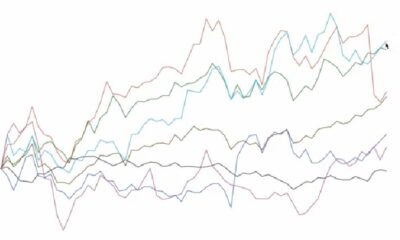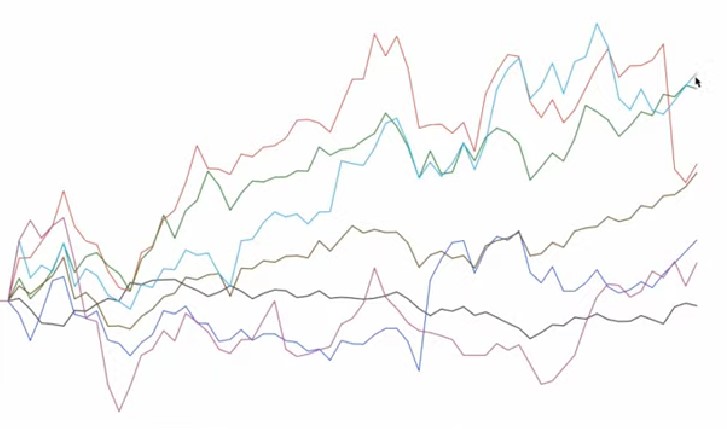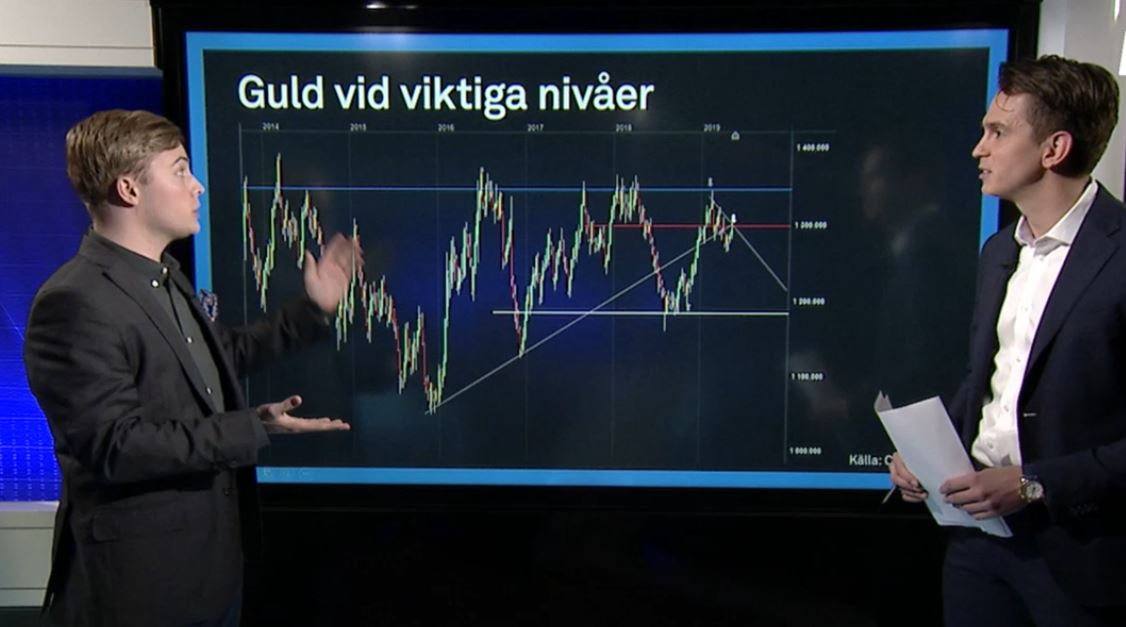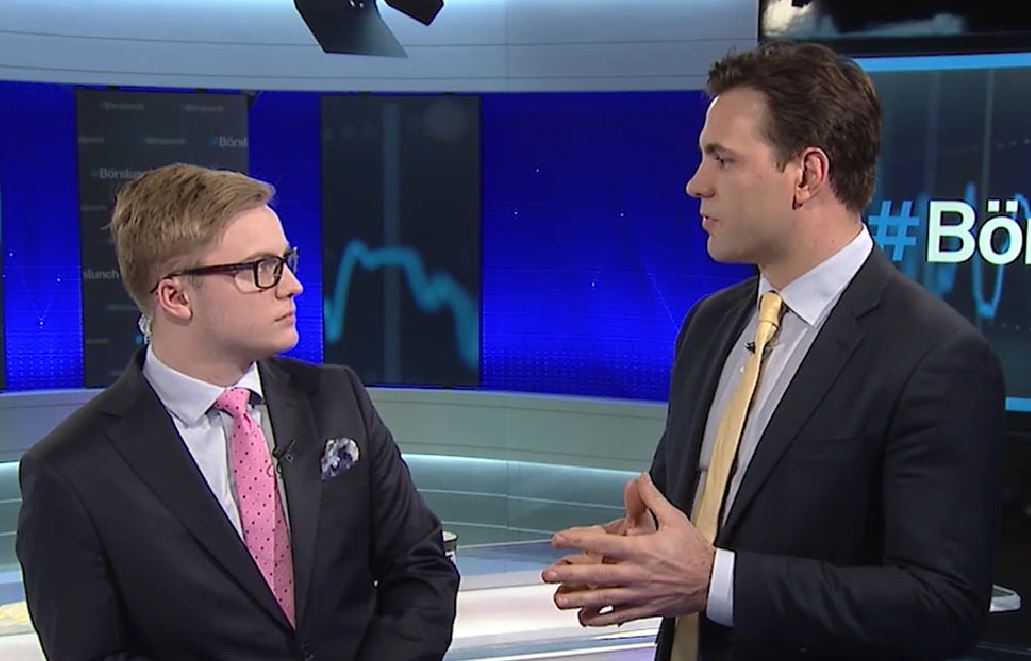Analys från DailyFX
Monitor Yen Crosses for Breakouts; S&P 500 Monthly Key Reversal
3 month triangles in USDJPY and EURJPY may give way to breakouts although the proximity to the apex in both warns of false moves. A rare monthly key reversal unfolded in the SP 500 and USDZAR volatility remains favorable for active traders.
Subscribe to Jamie Saettele’s distribution list in order to receive FX trading strategy delivered to your inbox.
Jamie is the author of Sentiment in the Forex Market.
USD/JPY and Nikkei 225
Daily

Chart Prepared by Jamie Saettele, CMT using Marketscope 2.0
Automate trades with Mirror Trader
– USDJPY trade since 5/22 may take the form of a triangle, a common continuation pattern.
– The apex of the triangle (black lines drawn off of highs/lows and red lines drawn off of closes) occurs 9/26, 91 trading days from the 5/22 top. Today was the 72nd day of consolidation, which is more than 75% of the distance from the top to the apex. The risk of a false breakout increases after the 75% point however (Edwards and Magee, Technical Analysis of Stock Trends).
– At turns, the Nikkei 225 (NK) and USDJPY have diverged (failed to confirm price extremes). Both topped on 5/22. At the June low, the USDJPY low wasn’t confirmed by a new NK low. At the July high, the NK high wasn’t confirmed by a new USDJPY high. At the August low, the NK low wasn’t confirmed by a new USDJPY low.
-The Nikkei decline from the July high may take the form of a wedge (in Elliott, this would be A-B-C with wave C as a diagonal). Such patterns often give way to sharp reversals.
Strategy – Monitor for swing trade breakout above 99. Also, support before the August low is 97.60 and 96.70.
Daily

Chart Prepared by Jamie Saettele, CMT using Marketscope 2.0
– EURJPY trade since 5/22 may also take the form of a triangle, a common continuation pattern. The risk of a false breakout due to the proximity of the apex applies to EURJPY in the same manner as USDJPY.
-Triangle support crosses 129 early next week. The close of the August low day (8/12) is 128.87 and is also possible support.
-The decline from 132.42 (8/23 high) would divide into Fibonacci proportion at 128.84.
Strategy – Monitor for a breakout / monitor for support just below 129 for long entry. Beware a false break, especially if lower. 127.50 (close of the large range day on 6/13) is possible support below the August low of 127.96.
SP 500 2009-Present
Daily

Chart Prepared by Jamie Saettele, CMT
– The SP 500 traded to the trendline that extends off of the November 2012 and June 2013 lows. Price has touched the line 2 of the last 4 days.
-8/27 NYSE TRIN at the close was 2.66 (previous instances going back to the 2009 low indicated in red-the chart below plots instances from 2005 to 2009). Extremely high TRIN readings can indicate panic lows or the beginning of larger declines; thus the current juncture is CRITICAL.
-Failure to hold and 1600 (April high at 1597 and 6/6 low at 1598) will be seen in short order.
-Monthly JS Spike (2 charts down…key reversal with range = 12 month ATR). In the last decade, bearish spikes have led to at least several months of consolidation. The most recent instance was July 2007. That high was revisited in October 2007 before the crisis.
Strategy – Dangerous level to operate. Panic lows, if even as just part of a larger topping process, could come near 1590-1600. If September starts off higher, then will look for a lower high.
SP 500 2005-2009
Daily

Chart Prepared by Jamie Saettele, CMT
SP 500
Monthly

Chart Prepared by Jamie Saettele, CMT
Weekly

Chart Prepared by Jamie Saettele, CMT using Marketscope 2.0
– USDZAR traded to its highest level since March 2009 this week before closing near the low for the week.
– JS Spikes (see below chart) formed on 8/22 and 8/28. I classify these as key reversals from at least a 20 day price extreme (in this case it was a 4+ year price extreme) with a range at least as great as the 20 day ATR. Previous instances are circled on the chart.
Strategy – Looking for a high next week. 10.31-10.33 is the estimated resistance zone. First big support is probably 10.10. Must keep an open mind here with respect to larger bull trend and be ready to cover and go long on approach into confluence of trendline support (see below).
USD/ZAR
Daily

Chart Prepared by Jamie Saettele, CMT using Marketscope 2.0
— Written by Jamie Saettele, CMT, Senior Technical Strategist for DailyFX.com
To contact Jamie e-mail jsaettele@dailyfx.com. Follow him on Twitter @JamieSaettele
Subscribe to Jamie Saettele’s distribution list in order to receive FX trading strategy delivered to your inbox.
Jamie is the author of Sentiment in the Forex Market.
Analys från DailyFX
EURUSD Weekly Technical Analysis: New Month, More Weakness
What’s inside:
- EURUSD broke the ‘neckline’ of a bearish ‘head-and-shoulders’ pattern, April trend-line
- Resistance in vicinity of 11825/80 likely to keep a lid on further strength
- Targeting the low to mid-11600s with more selling
Confidence is essential to successful trading, see this new guide – ’Building Confidence in Trading’.
Coming into last week we pointed out the likelihood of finally seeing a resolution of the range EURUSD had been stuck in for the past few weeks, and one of the outcomes we made note of as a possibility was for the triggering of a ’head-and-shoulders’ pattern. Indeed, we saw a break of the ’neckline’ along with a drop below the April trend-line. This led to decent selling before a minor bounce took shape during the latter part of last week.
Looking ahead to next week the euro is set up for further losses as the path of least resistance has turned lower. Looking to a capper on any further strength there is resistance in the 11825-11880 area (old support becomes new resistance). As long as the euro stays below this area a downward bias will remain firmly intact.
Looking lower towards support eyes will be on the August low at 11662 and the 2016 high of 11616, of which the latter just happens to align almost precisely with the measured move target of the ‘head-and-shoulders’ pattern (determined by subtracting the height of the pattern from the neckline).
Bottom line: Shorts look set to have the upperhand as a fresh month gets underway as long as the euro remains capped by resistance. On weakness, we’ll be watching how the euro responds to a drop into support levels.
For a longer-term outlook on EURUSD, check out the just released Q4 Forecast.
EURUSD: Daily
—Written by Paul Robinson, Market Analyst
You can receive Paul’s analysis directly via email bysigning up here.
You can follow Paul on Twitter at@PaulRobinonFX.
Analys från DailyFX
Euro Bias Mixed Heading into October, Q4’17

Why and how do we use IG Client Sentiment in trading? See our guide and real-time data.
EURUSD: Retail trader data shows 37.3% of traders are net-long with the ratio of traders short to long at 1.68 to 1. In fact, traders have remained net-short since Apr 18 when EURUSD traded near 1.07831; price has moved 9.6% higher since then. The number of traders net-long is 15.4% lower than yesterday and 16.4% higher from last week, while the number of traders net-short is 0.4% higher than yesterday and 10.5% lower from last week.
We typically take a contrarian view to crowd sentiment, and the fact traders are net-short suggests EURUSD prices may continue to rise. Positioning is more net-short than yesterday but less net-short from last week. The combination of current sentiment and recent changes gives us a further mixed EURUSD trading bias.
— Written by Christopher Vecchio, CFA, Senior Currency Strategist
To contact Christopher Vecchio, e-mail cvecchio@dailyfx.com
Follow him on Twitter at @CVecchioFX
To be added to Christopher’s e-mail distribution list, please fill out this form
Analys från DailyFX
British Pound Reversal Potential Persists Heading into New Quarter

Why and how do we use IG Client Sentiment in trading? See our guide and real-time data.
GBPUSD: Retail trader data shows 38.2% of traders are net-long with the ratio of traders short to long at 1.62 to 1. In fact, traders have remained net-short since Sep 05 when GBPUSD traded near 1.29615; price has moved 3.4% higher since then. The number of traders net-long is 0.1% higher than yesterday and 13.4% higher from last week, while the number of traders net-short is 10.6% lower than yesterday and 18.3% lower from last week.
We typically take a contrarian view to crowd sentiment, and the fact traders are net-short suggests GBPUSD prices may continue to rise. Yet traders are less net-short than yesterday and compared with last week. Recent changes in sentiment warn that the current GBPUSD price trend may soon reverse lower despite the fact traders remain net-short.
— Written by Christopher Vecchio, CFA, Senior Currency Strategist
To contact Christopher Vecchio, e-mail cvecchio@dailyfx.com
Follow him on Twitter at @CVecchioFX
To be added to Christopher’s e-mail distribution list, please fill out this form
-
Analys från DailyFX10 år ago
EUR/USD Flirts with Monthly Close Under 30 Year Trendline
-
Marknadsnyheter5 år ago
BrainCool AB (publ): erhåller bidrag (grant) om 0,9 MSEK från Vinnova för bolagets projekt inom behandling av covid-19 patienter med hög feber
-

 Marknadsnyheter3 år ago
Marknadsnyheter3 år agoUpptäck de bästa verktygen för att analysera Bitcoin!
-
Analys från DailyFX12 år ago
Japanese Yen Breakout or Fakeout? ZAR/JPY May Provide the Answer
-

 Marknadsnyheter2 år ago
Marknadsnyheter2 år agoDärför föredrar svenska spelare att spela via mobiltelefonen
-
Analys från DailyFX12 år ago
Price & Time: Key Levels to Watch in the Aftermath of NFP
-
Analys från DailyFX8 år ago
Gold Prices Falter at Resistance: Is the Bullish Run Finished?
-

 Nyheter7 år ago
Nyheter7 år agoTeknisk analys med Martin Hallström och Nils Brobacke










